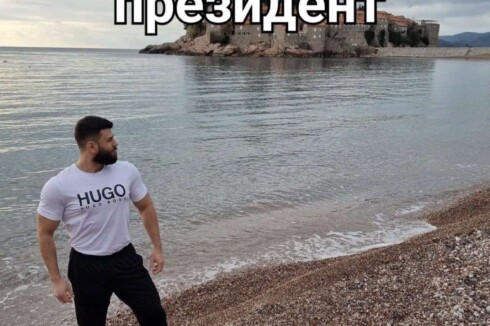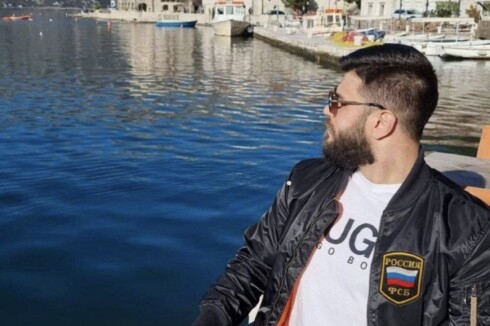Interview conducted by Ljubomir Filipovic
Michael Colborne is a Canadian journalist who writes for the prestigious Bellingcat and leads the Bellingcat Monitoring research project, focusing on extreme right-wing movements in Central and Eastern Europe.
The reason we had this conversation is Michael’s research of the chauvinist ‘Male State’ group, located in Montenegro recently. Interested in Michael’s research and following his instructions, I followed the leader of this organization, Vladislav Pozdnyakov, and his Telegram channels, and there I saw – the leader of this dangerous extremist organization striking a pose in Perast and Sveti Stefan, as well as on the terrace of an apartment in Podgorica. Mr Pozdnyakov spreads on his channels homophobia, racism, chauvinism, anti-Semitism and calls for harassment of people, groups and companies that his organization chooses as a target. And in order to become his target, it’s enough to have a model of another, non-white race in your ad.
Mr Pozdnyakov reported on rallies in Podgorica, praised Vladislav Dajkovic, used insulting language about how Ukrainians are vandalizing Montenegrin schools…
Mr Colborne has been following ‘Male State’, a group set up on the Internet and run by Vladislav Pozdnyakov – a fitness geek and a medical student dropout – as Mr Colborne describes him, for several years already.
CdM: Hello, Michael. In short – what is or who is the ‘Male State’? What do they believe in and what are their main goals? Their main focus now seems to have shifted from male chauvinism and racism to reporting on the war in Ukraine, war propaganda and spreading misinformation about the conflict.
COLBORNE: The Male State group was established in 2016. It’s an informal group carrying out its actions mostly on the Internet. It started as a misogynistic group, on the VKontakte website. The group then included young frustrated Russians. They targeted women, promoted misogyny and a concept they used to call ‘national patriarchy’. Basically, everything revolves around Russian ethno-nationalism, homophobia, anti-Semitism – which is very interesting, particularly in the light of their recent promotion of Putin’s “denazification” in Ukraine. They’re focused on spreading ethnic hatred towards immigrants who come to Russia from Central Asian countries and the Caucasus. Their channels were an incredible window into every possible racial and ethnic insult known to the Russian language.
CdM: They were banned in Russia last year. Why did they become too extreme even for Putin’s Russia? What’s your opinion on this?
COLBORNE: VKontakte, where they had a page with 160.000 followers, decided to ban them earlier due to the spread of hatred. Their flash mobs and cyber bullying very quickly moved into the real world as well. People committed violence inspired by writings on this channel, and it was too much even for Russia. To my surprise, a court in Nizhny Novgorod initiated proceedings against them in September and declared them an extremist organization in October, banning their work in line with federal Russian laws.
They changed their name on the Telegram channel literally overnight, from ‘Male State’ to ‘Male Legion’. Our last fall research shows it in detail. However, despite the ban, they continue with their activities on Telegram by having over one hundred thousand followers on various channels – on Pozdnyakov’s personal channel, on the ‘Male Legion’ … They often create thematic channels, such as the recently established and banned-by-Telegram channel called ‘Collaborators’, targeting Russian activists who protested against the war. It’s very doubtful that they are still working unhindered despite the ban in Russia. A Russian-language study, conducted by Radio Free Europe, suggests that Pozdnyakov himself bragged about his connections with the FSB.
CdM: You’ve found out that they’re now in Podgorica, running channels from here. Do you know something about his ties with local individuals and groups?
COLBORNE: I found out about his stay in Montenegro at the very end of my research. Everything I could find out so far is that in the beginning of last month, he made a call from the flat where he allegedly lives and will be living for the next six months. I saw that he was reporting on the pro-Russian protests and was taking photos somewhere in Perast. The geolocation data suggest that the flat he made the call from is in Podgorica. I don’t know about his contacts, but I hope this research will be useful for local reporters and investigators to deal with this matter.









